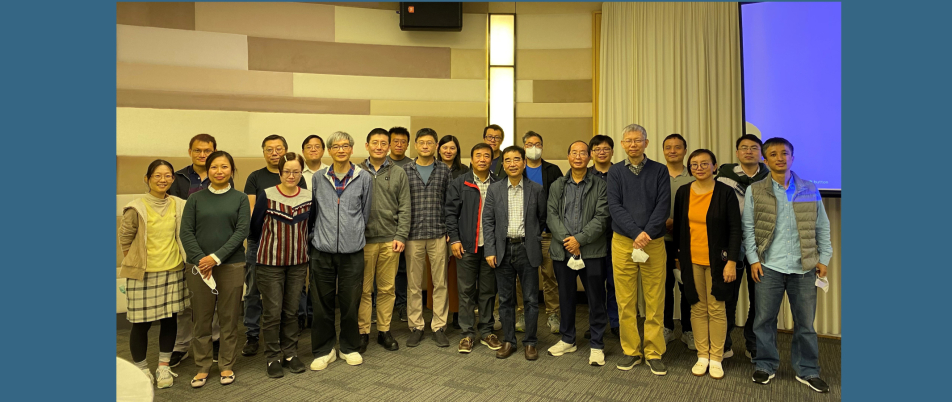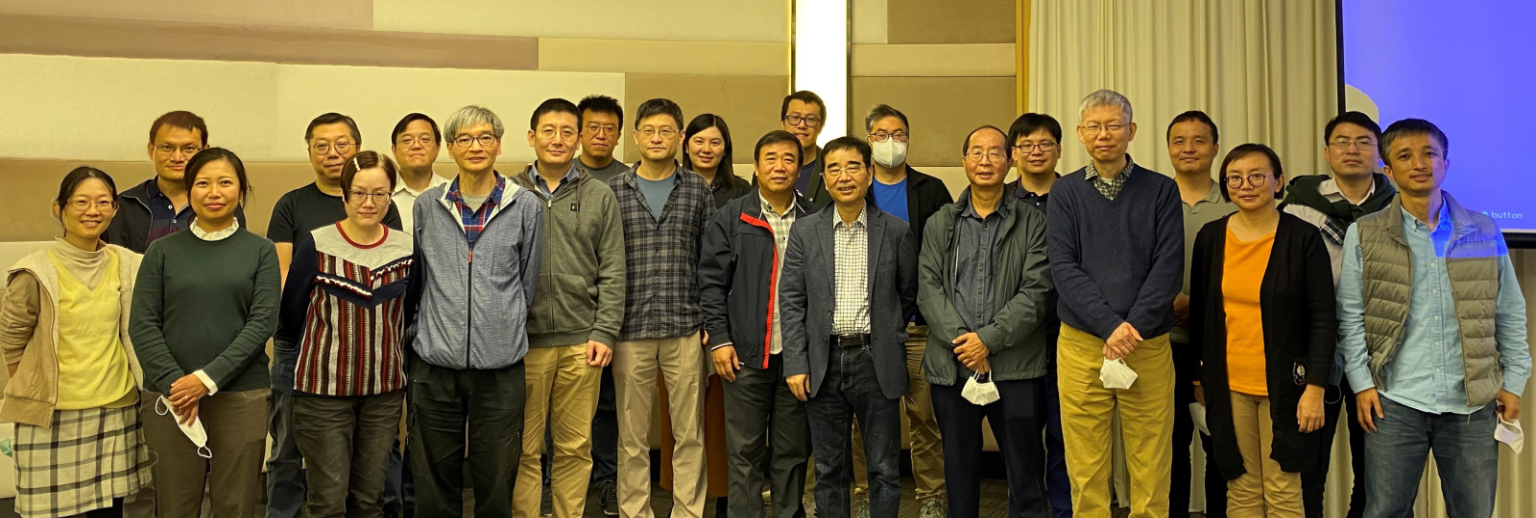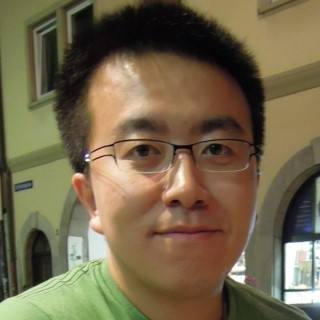Academic StaffBACK
Professor Zi Yang Meng is a physicists majored in quantum many-body numerics, he is a Professor in the Department of Physics at the University of Hong Kong, and was a Professor in the Institute of Physics, Chinese Academy of Sciences in Beijing. He obtained his Phd in Germany and has been postdoctoral fellows in the US and Canada. He has published more than 140 research articles with citations ~7000. He also write essays (mainly in Chinese) to express his opinion on physics research and life as a scientist in general. See more on his group page https://quantummc.xyz/.
Professor Meng is a theoretical and computational physicist, his research focuses on developing large-scale numerical simulations and utilizing modern field-theoretical and topological insights, to investigate quantum many-body systems, quantum materials and quantum entanglement. These research areas propel the continuous development of human society, ranging from the high-temperature superconductors which potentially solve the energy crisis to the topological matter as the building block of quantum computer. However, the difficulty of such research lies in the fact that the basic ingredients of quantum materials -- the electrons -- are subject to the mutual quantum mechanical interactions among millions of them and the complicated chemical, physical and topological environment they live in. The full quantum treatment of these many electrons is way beyond the time of paper and pencil, and instead requires modern computational techniques and advanced theoretical analyses. Quantum many-body simulations are becoming the most prominent and indispensable techniques to tackle such difficult problems and reveal new paradigms in the fundamental laws of physics. Professor Meng presents research topics cover 2D Moiré and quantum materials modelling and computation paradigm, Computation of quantum entanglement, Constrained lattice models and phase transitions, Rydberg atom arrays and long-range interactions.
- “Emergent glassy behavior in a kagome Rydberg atom array”, Zheng Yan, Yan-Cheng Wang, Rhine Samajdar, Subir Sachdev, Zi Yang Meng, Phys. Rev. Lett. 130, 206501 (2023)
- “Intrinsic nonlinear Hall effect and gate-switchable Berry curvature sliding in twisted bilayer graphene”, Meizhen Huang, Zefei Wu, Xu Zhang, Xuemeng Feng, Zishu Zhou, Shi Wang, Yong Chen, Chun Cheng, Kai Sun, Zi Yang Meng, Ning Wang, Phys. Rev. Lett. 131, 066301 (2023) Editors’ Suggestion
- “Fermion disorder operator at Gross-Neveu and deconfined quantum criticalities”, Zi Hong Liu, Weilun Jiang, Bin-Bin Chen, Junchen Rong, Meng Cheng, Kai Sun, Zi Yang Meng, Fakher F. Assaad, Phys. Rev. Lett. 130, 266501 (2023)
- “Thermodynamic characteristic for correlated flat-band system with quantum anomalous Hall ground state”, Gaopei Pan, Xu Zhang, Hongyu Lu, Heqiu Li, Bin-Bin Chen, Kai Sun, and Zi Yang Meng, Phys. Rev. Lett. 130, 016401 (2023)
- “Unlocking the general relationship between energy and entanglement spectra via the wormhole effect”, Zheng Yan, Zi Yang Meng, Nature Communications 14, 2360 (2023)
- “Triangular lattice quantum dimer model with variable dimer density”, Zheng Yan, Rhine Samajdar, Yan-Cheng Wang, Subir Sachdev, Zi Yang Meng, Nature Communications 13, 5799 (2022)
- “Scaling of entanglement entropy at deconfined quantum criticality”, Jiarui Zhao, Yan-Cheng Wang, Zheng Yan, Meng Cheng, Zi Yang Meng, Phys. Rev. Lett. 128, 010601 (2022)
- “Monte Carlo study of the pseudogap and superconductivity emerging from quantum magnetic fluctuations”, Weilun Jiang, Yuzhi Liu, Avraham Klein, Yuxuan Wang, Kai Sun, Andrey V. Chubukov, Zi Yang Meng, Nature Communications 13, 2655 (2022)
- “Realization of Topological Mott Insulator in a Twisted Bilayer Graphene Lattice Model”, Bin-Bin Chen, Yuan Da Liao, Ziyu Chen, Oskar Vafek, Jian Kang, Wei Li, Zi Yang Meng, Nature Communications 12, 5480 (2021)
- “Itinerant Quantum Critical Point with Fermion Pockets and Hot Spots”, Zi Hong Liu, Gaopei Pan, Xiao Yan Xu, Kai Sun, Zi Yang Meng, PNAS 116 (34) 16760 (2019)
- Collaborative Research Fund (CRF) - Group Research Project 2022/2023 (PI): Many-body paradigm in quantum moiré material research (HKU Project Code: C7037-22G)
- ANR / RGC Joint Research Scheme 2022/23 (PI): Automate: Advanced Numerical Methods for Highly Entangled Quantum Matter (HKU Project Code: A_HKU703/22)
- General Research Fund (GRF) 2023/24 (PI): The novel phases and numerical simulation of Rydberg arrays (HKU Project Code: 17302223)
- General Research Fund (GRF) 2022/23 (PI): Quantum moiré materials and non-local measurements for quantum matter (HKU Project Code: 17309822)
- General Research Fund (GRF) 2021 (PI): Computational investigations on correlated quantum materials (HKU Project Code: 17301721)





